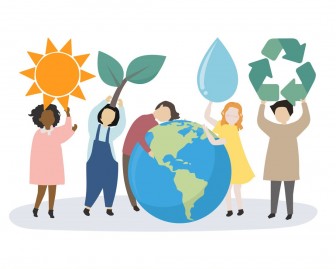How does metrology support the economy and government?
Economic growth and prosperity rely on an economy’s ability to develop, manufacture and trade quality products and services. Metrology can help a government establish consumer, business and international confidence in an economy’s products and services, regulatory frameworks as well as reduce technical barriers to trade for export and safeguard quality of imports, among other things.
Every day, consumers, traders, government regulators and industry make decisions based on measurement results. These measurements affect economic and personal well-being. A well-functioning society has confidence in all measurements, with transparency for consumers, businesses and regulators.
A role of government is to provide a sound national measurement system so that traders and consumers can make informed decisions about products and services that rely on good measurement. A government provides a sound national measurement system by:
- establishing and enabling Quality Infrastructure including a National Metrology Institute and Legal Metrology Authority;
- promoting the use of metrology;
- establishing a comprehensive and coherent metrology policy/legislative instrument.
Metrology functions - scientific, industrial and legal - are essential pillars of Quality Infrastructure that, among other things:
- Help ensure fair trade,
- Improve public safety and security,
- Advance manufacturing and services,
- Improve quality of life, and
- Support scientific and technological innovations.
A sound national measurement as part of effective Quality Infrastructure provides the means for Government to, eg, foster scientific and industrial innovation, ensure business is able to compete effectively in global markets and implement regulatory control. It can also support other Government initiatives to achieve policy goals through consistent measurement practice resulting in confidence in measurement results and reporting on compliance.
Areas of potential control include:
- Retail, wholesale, domestic, cross-border and international trade
- Production of goods: agricultural and industrial
- Revenue collection for tax and duties
- Fees for services, such as rubbish collection or disposal and taxi metering
- Utility metering: water, gas, and electricity
- Contracts: tonnes of iron ore, area of land and quantity statements
- Health services: temperature, radiotherapy, blood, pressure, cholesterol testing, chemical and biological testing of samples
- Human safety: speed surveillance and enforcement, breath analyser, toxic measurement, workplace safety
- Environmental and pollution control: vehicle exhaust, carbon trading and noise
- Resource control and protection: fish, minerals, oil, energy and water
For more on how metrology helps reduce technical barriers to trade, see here.
Accurate government revenue collection
Governments collect revenue through excise and taxes based on measurement. These include excise duties on products produced, sold, imported and exported. Legal metrology ensures a fair payment of tax for both government and business.
The sale by measure of bulk commodities can be a significant component of both export and national income particularly in products such as timber, rice, coffee, palm oil, coal, iron-ore, gold, gems and natural gas.
Governments of both developed and developing nations collect significant amounts of revenue through excise and resource rent taxes based on measurement. All of these sources of government revenue and national income rely on accurate and consistent measurement.
Promoting good governance
A range of government regulations cover areas such as environmental management, occupational health and safety, traffic control, and air traffic control. Good legislation includes early consideration of the benefits and use of the metrology system.
Providing training and technical expertise
Measurement competence is increased by delivering training programs in:
- calibration
- measurement uncertainty
- analytical method of validation;
- verification test procedures.
Training programs in new and developing areas of metrology provide opportunities to model best practice in areas such as coordinate measurement machines and nanotechnologies.
Protecting the environment

Monitoring the environment is becoming increasingly important. Decisions made by governments affecting the environment require the support of accurate traceable measurement. These decisions impact how we live and include:
- control of fishery resources
- monitoring crowd noise at major events, aircraft noise and industrial noise
- accurate water, air and soil testing for pollutants, heavy metals, poisons and pesticide residues
- identification of poisons in the environment
Supporting Innovation and Technical Development
The metrology system is a key resource for the effective functioning of innovation and for economic performance more widely. Metrology, documentary standards and accreditation are all deeply embedded in the modes of innovation practice across industry and commerce and in the public sector. They are complementary to, and supportive of, the other drivers of innovation, such as new technologies, knowledge from the research base, organisational and managerial changes and marketing strategies. The National Measurement System is part of or directly supports several types of innovation strategy and has a distinct impact on productivity. The innovation and efficiency-promoting roles of the infrastructure are contributors to economic growth and productivity as well as to international competitiveness. These concepts are explored in this report from the UK Government website.
 Innovation Dynamics and the Role of Quality Infrastructure – UK (2012)
Innovation Dynamics and the Role of Quality Infrastructure – UK (2012)
Supporting achievement of Sustainable Development Goals (SDGs)
Since metrology is one of the key components of effective Quality Infrastructure, it is an important tool which enables economies throughout the world to meet increasing global challenges whilst contributing to sustainable development. UNIDO has published a brochure on "The role of metrology in the context of the 2030 Sustainable Development Goals" which can be downloaded here:
 https://www.unido.org/sites/default/files/2017-05/SDG_Metrology_brochure_FINAL_pages_0.pdf
https://www.unido.org/sites/default/files/2017-05/SDG_Metrology_brochure_FINAL_pages_0.pdf

